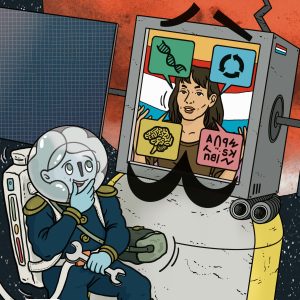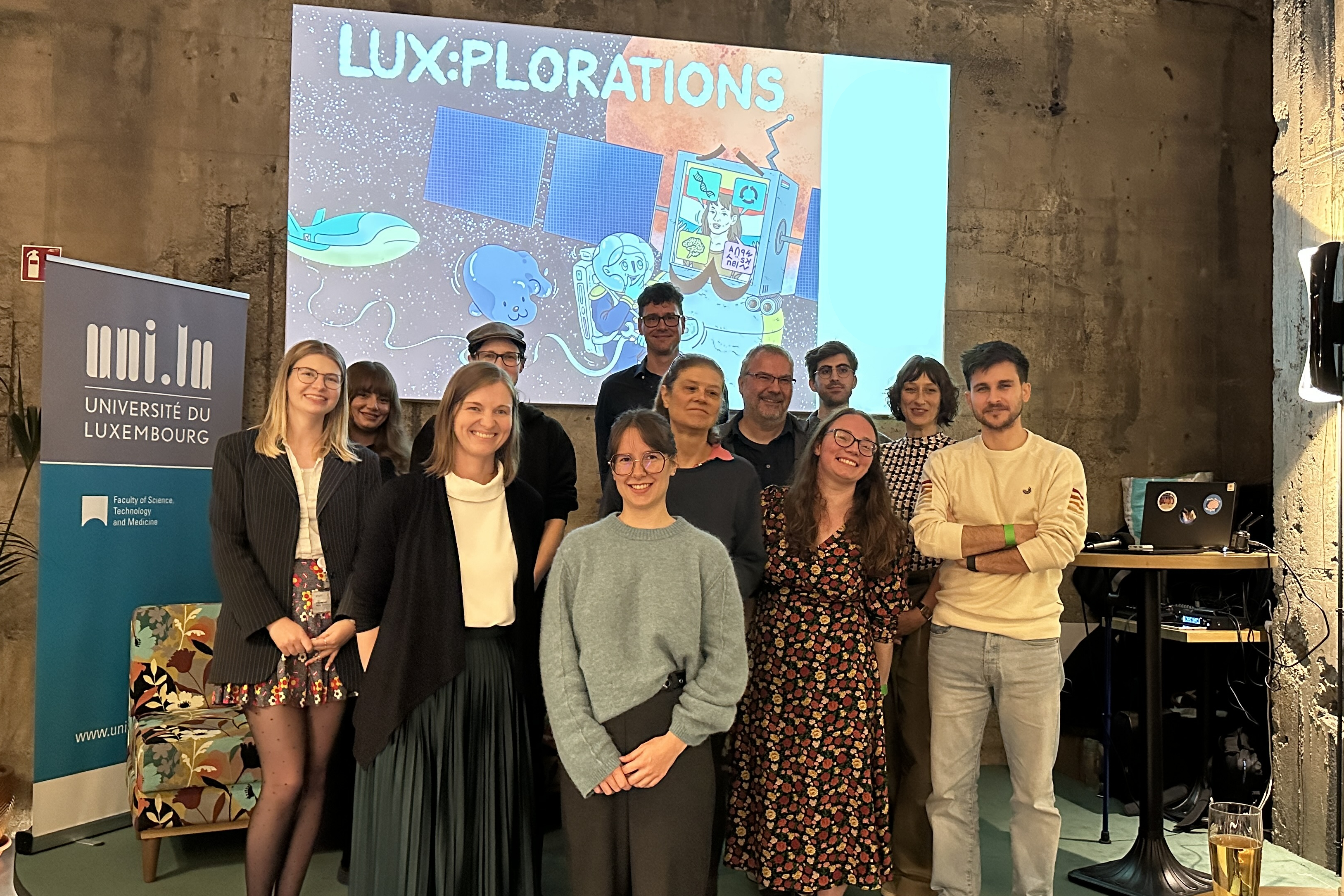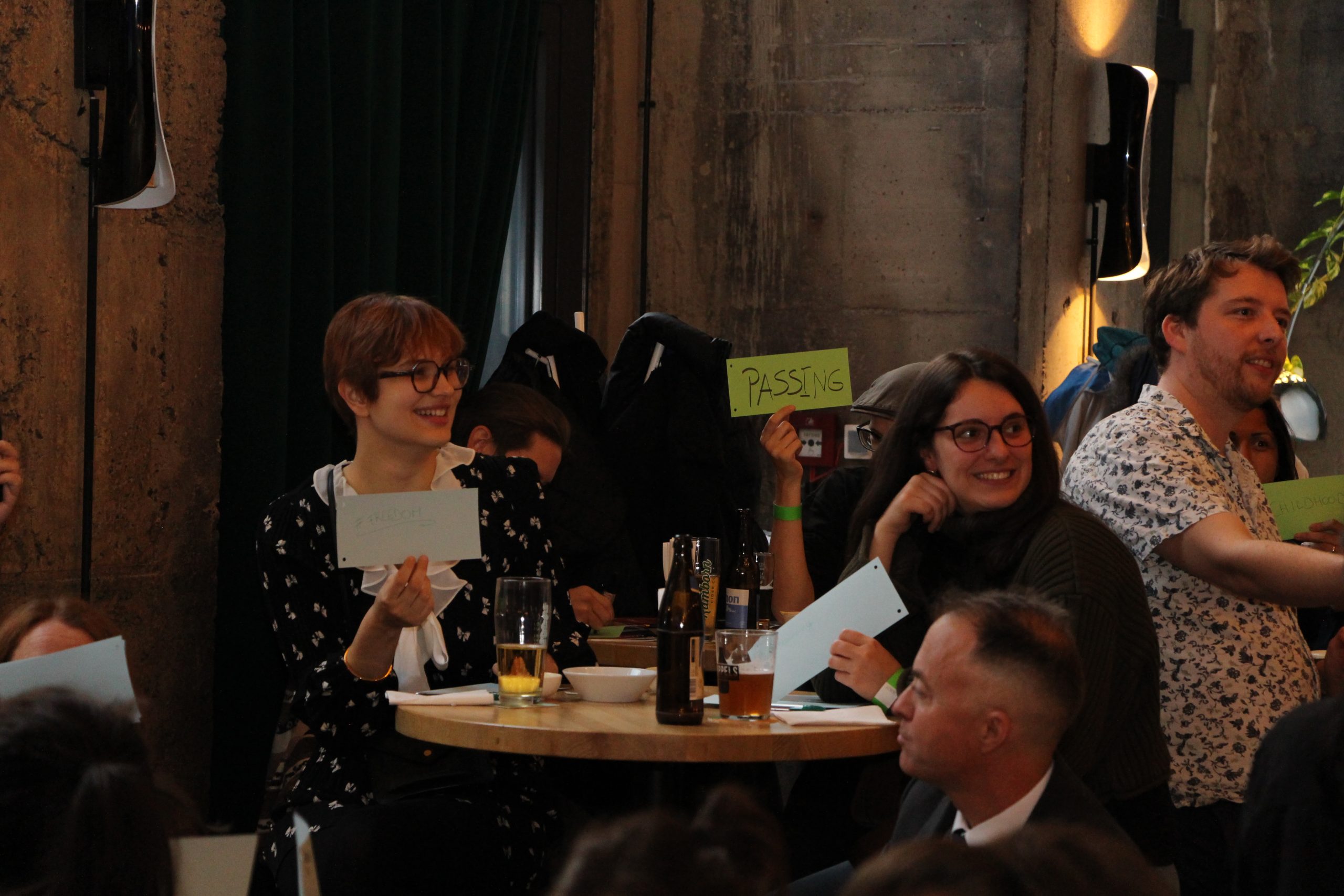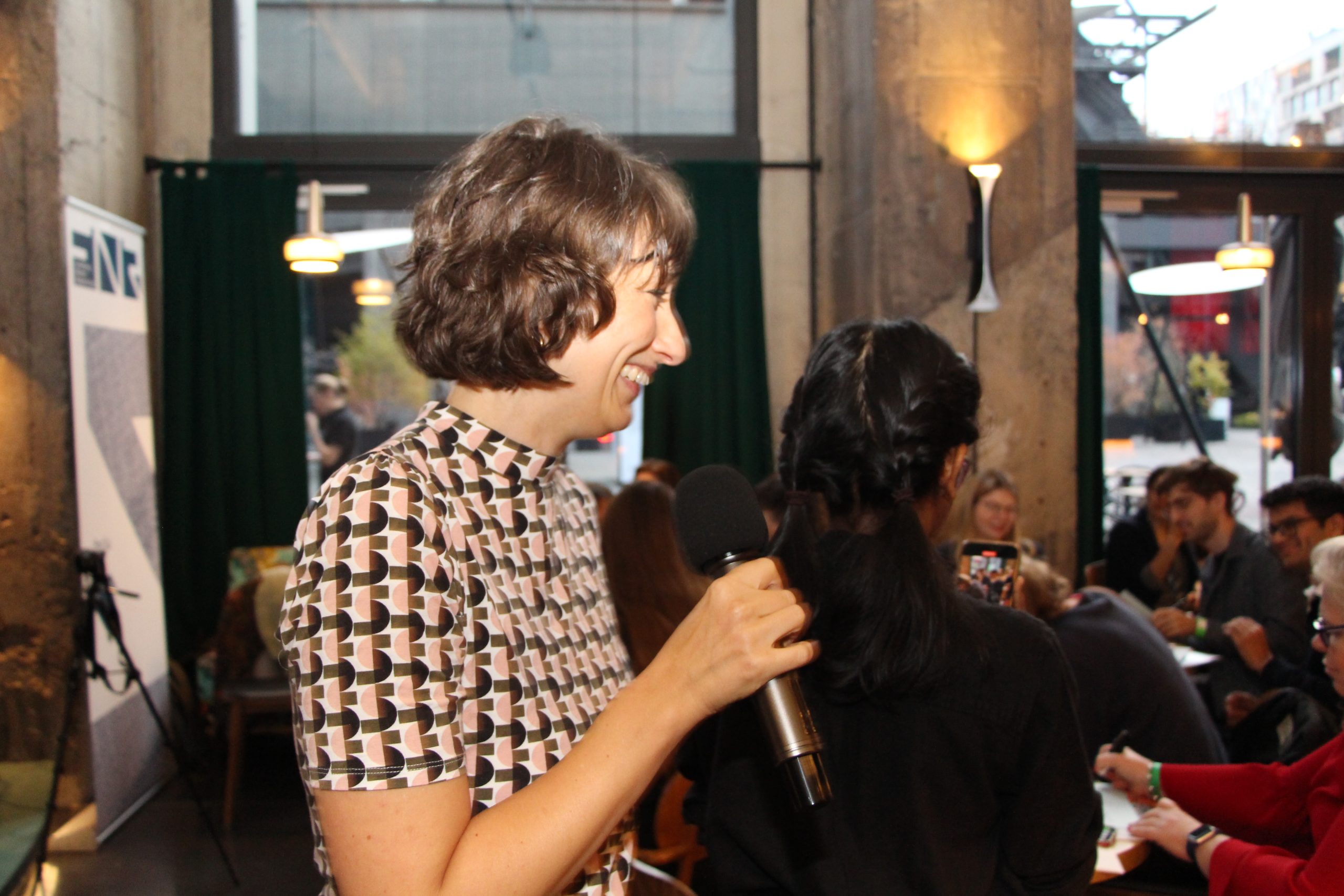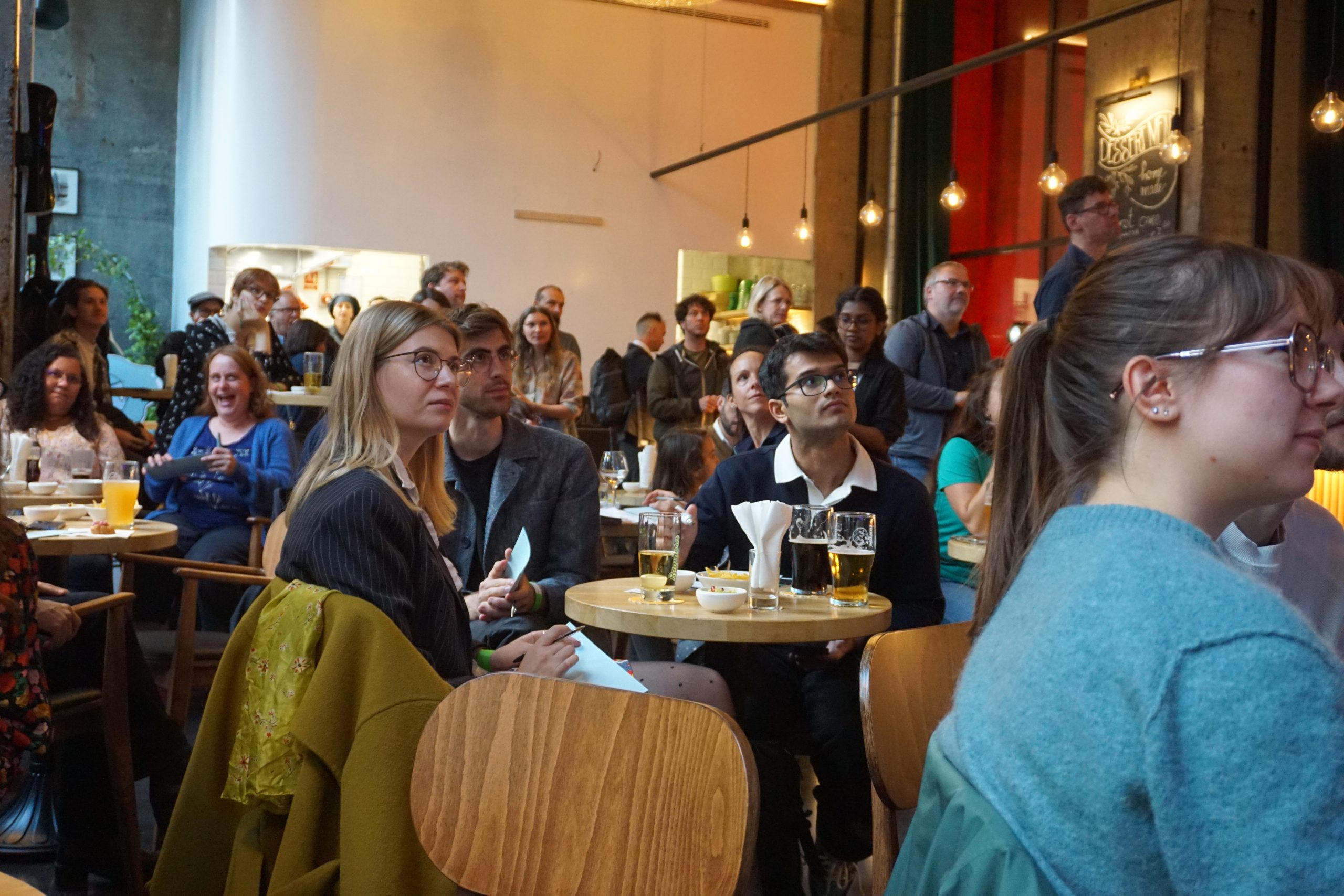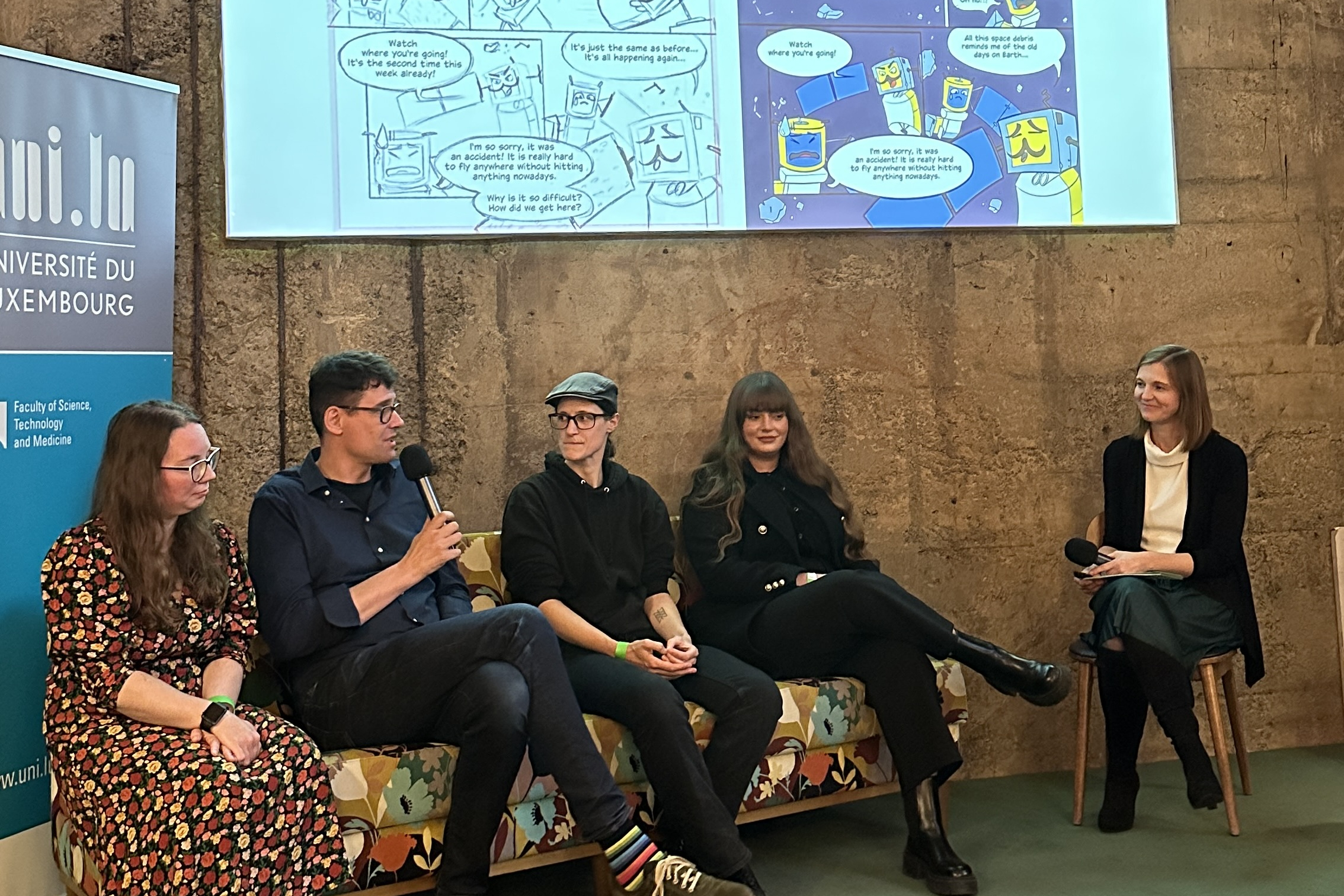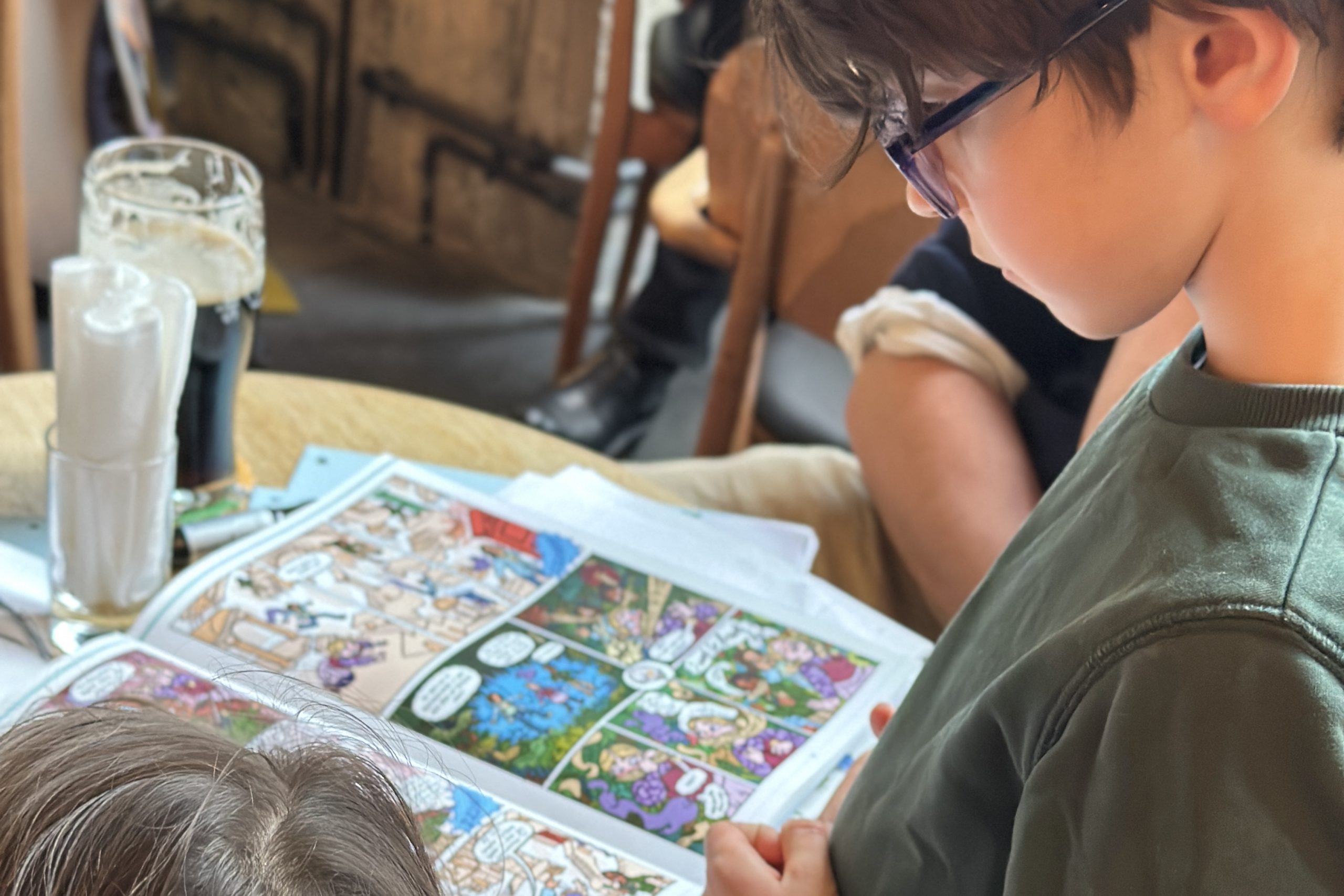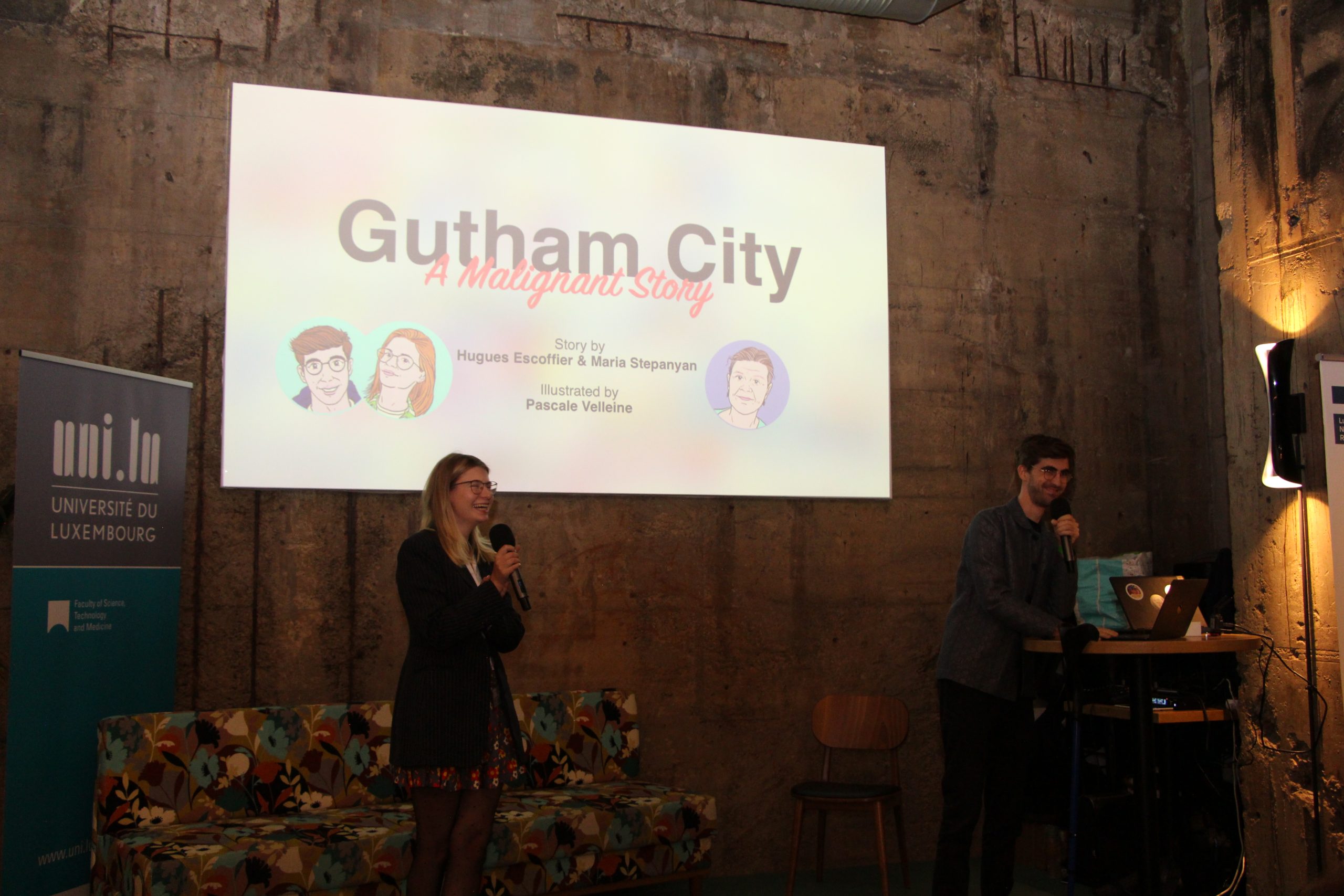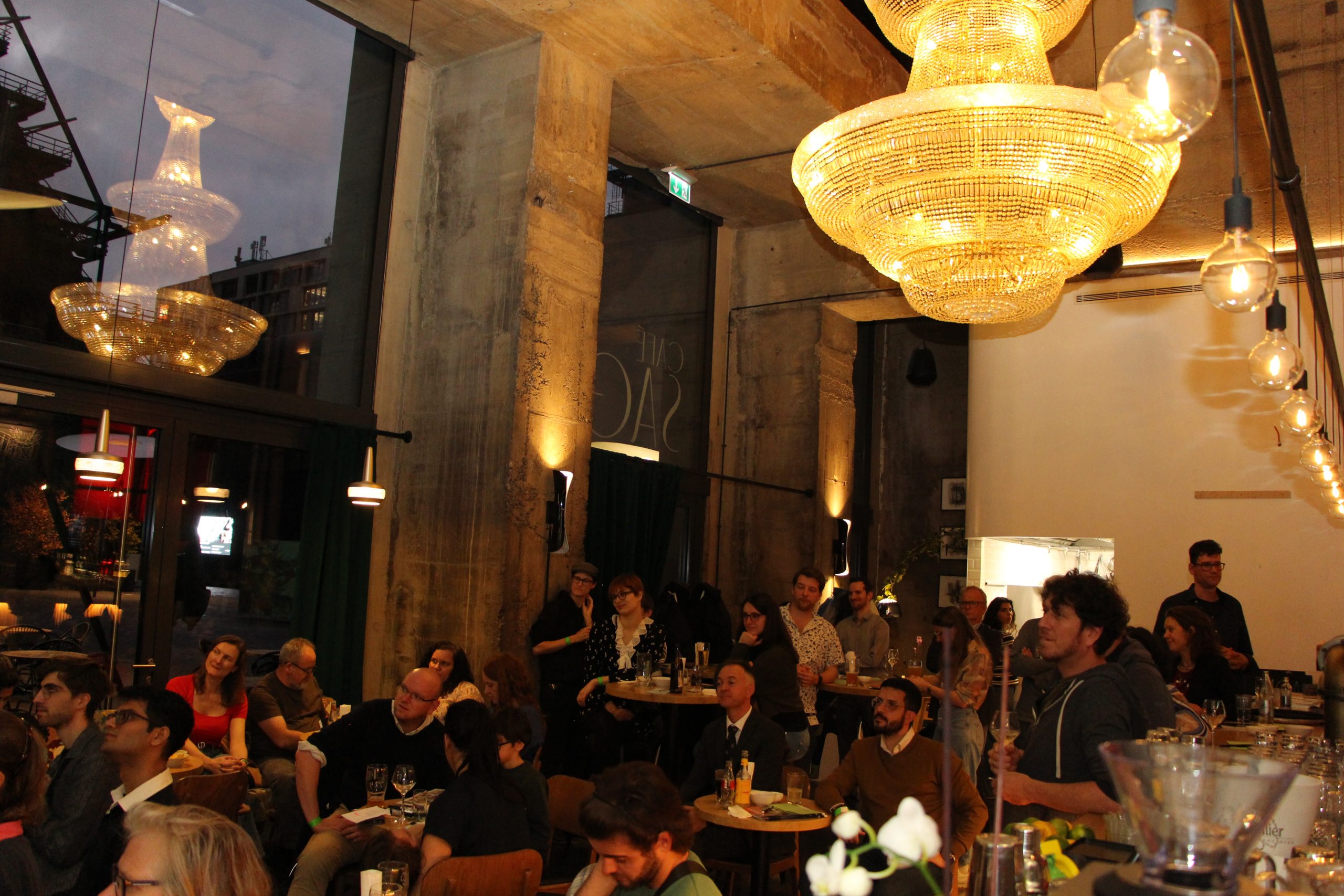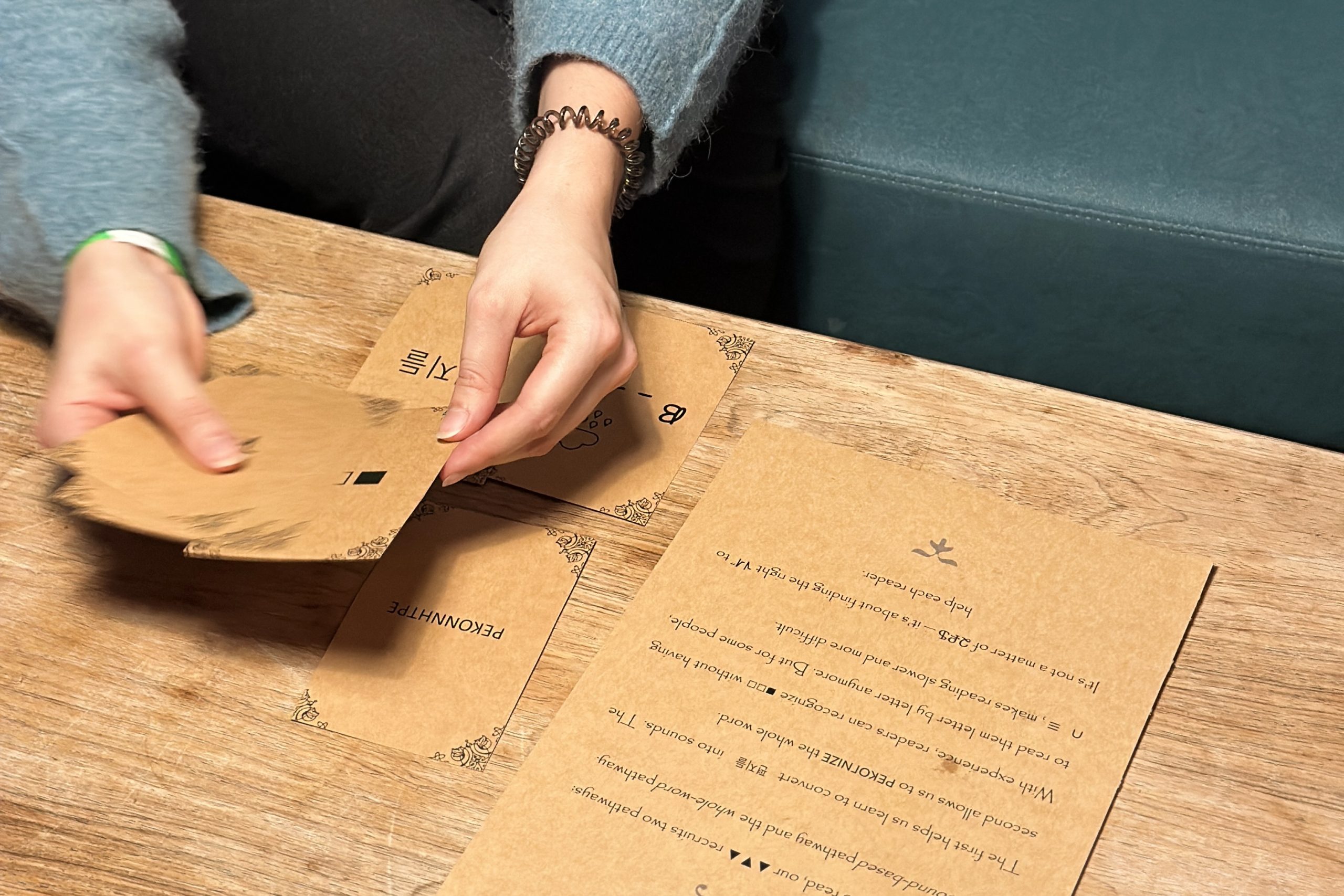The fourth volume of LUX:plorations, the science comic series of the University of Luxembourg, is out now. Four new stories about research in Luxembourg are awaiting readers in five different languages. Check it out now!
The newest edition of “LUX:plorations – A Universe of Research” features comics about anxiety, dyslexia, space research, construction, neurobiology, learning, cancer and much more. They envision a better world, in which people listen to what their bodies are trying to tell them, cancer is detected before it spreads, resources are used sustainably, and learning is a more collaborative process.
The stories have been written by eight doctoral candidates from Luxembourg: Amaury Barillon, Melanie Jorge Calenas, Hugues Escoffier, Claire Gigleux, Monica Louie, Citlali Bruce Rosete, Maria Stepanyan and Anxhela Sulaj. The comics are developed collaboratively by groups of two scientists working together with a Luxembourgish comic artist, a supervisor and a mentor. Most of the young scientists worked in interdisciplinary groups, finding connections between very different research topics. Together they produced a 19-page long comic story that explores different research topics in an entertaining way.
The comics of volume 4 have been drawn by Nora Back, Vincent Biwer, Marion Dengler and Pascale Velleine. Cover artwork and portraits have been drawn by Jeff Hemmer. To learn more about the comics and people behind them you can check out the playlist on YouTube or the LUX:plorations TikTok channel. More behind the scenes videos and interviews will be released in the following months.
Release event
LUX:plorations Vol. 4 was published during a release event at the Café Saga on 15 October with around 50 visitors. It started with a keynote speech by Veronika Mischitz, one of the two mentors and comic experts in LUX:plorations. In her interactive presentation she spoke about the importance of building connections, storytelling and how science stories can help us build a better world: “We’ve all experienced how powerful narratives were used to shape our world and societies. Others might use stories to divide. But we can also build bridges. By telling thoughtfully crafted, well-founded and evidence-based stories we can build bridges between the world of science and non-academic groups. That’s why we, as a society, need more science stories.”
After a brief presentation of volume 4 by Nicole Paschek, project leader of LUX:plorations, a panel of team members gave more insights into the eight month long production of the comic: the workshop that though the scientists involved how to make comics and the collaboration with the artists. Finally, Hugues Escoffier and Maria Stepanyan showcased how a comic reading can be used to spark curiosity for a topic and encourage discussions.
More than comics
The comic readings as well as science workshops on the topics covered in the comics are also part of the project. They are offered to school classes and can also be visited by individuals during various events across the country. Workshops about reading, cybersecurity and cancer will be offered at the International Science Expo Luxembourg at the end of October and the Luxembourg Science Center in November. Don’t miss upcoming events by subscribing to the LUX:plorations newsletter. To find all the workshops currently available for booking you can check out the DESCOM website. Furthermore, resources for teachers are available for download too in order to support them in carrying out science workshops on their own.
LUX:plorations is also organizing a lottery with several prizes to win sponsored by the Luxembourg Institute of Health, the Luxembourg Science Center and the University of Luxembourg. Everybody who gives feedback on the newest edition via the online survey until 15 February 2026 can enter their name to the lottery. As a small gesture of appreciation, everybody who gives feedback receives a free sticker.
Where to find the comics
All four editions of LUX:plorations are available on the dedicated website. You can choose your preferred language (English, French, German, Luxembourgish, Portuguese) and download it for free.
Those that prefer to read a hard copy of the comics, can soon find them at various distribution spots in Luxembourg:
- Luxembourg Learning Centre, Belval Campus
- Maison du Savoir Auditoires (MSA), Belval Campus
- Maison du Nombre (MNO), Belval Campus
- Maison du Sciences Humaines (MSH), Belval Campus
More spots where the comic will be available by the end of October are the Luxembourg Science Center in Differdange, the JFK building on Kirchberg Campus , F.use (IFEN) on Belval Campus, the National Library of Luxembourg (borrow only) and the Camões Portuguese Cultural Center Luxembourg. Please note that several languages of previous editions are out of stock and are only available as downloads now.
The team
LUX:plorations is organized by a team of science communication enthusiasts: Serge Haan, Head of the Department of Life Sciences and Medicine (DLSM) co-initiated the Doctoral Education in Science Communication (DESCOM) project, which is teaching science communication skills to researchers in Luxembourg. Together with his co-initiator Oliver Glassl, Project Manager at the Faculty of Science, Technology and Medicine (FSTM), and Nicole Paschek, Project Manager of DESCOM, they offer hands-on training initiatives like the science comics, a science writing competition, internships at various institutes communicating science in Luxembourg or science slams. They are joined by Bruno Teheux, Assistant-Professor at the Department of Mathematics (DMATH), for various outreach activities. All four of them supervised the groups creating the science comics of LUX:plorations. The groups were mentored by Veronika Mischitz, a visual storyteller, author and comic artist, and Jessica Burton, editor for comics as well as children’s books, and doctoral graduate from the Luxembourg Centre for Contemporary and Digital History (C²DH).
—–
LUX:plorations is supported by the Luxembourg National Research Fund (FNR) and the André Losch Fondation. The project is possible thanks to the support of the Faculty of Science, Technology and Medicine (FSTM), the Doctoral School in Science and Engineering (DSSE) and the Doctoral School in Humanities and Social Sciences (DSHSS) of the University of Luxembourg. LUX:plorations is carried out under the lead of DESCOM, a project initially supported by the Luxembourg National Research Fund (FNR) that aims to support interactions between academia and the public by providing different modes of training in science communication to doctoral candidates as well as by organising and supporting outreach activities.
